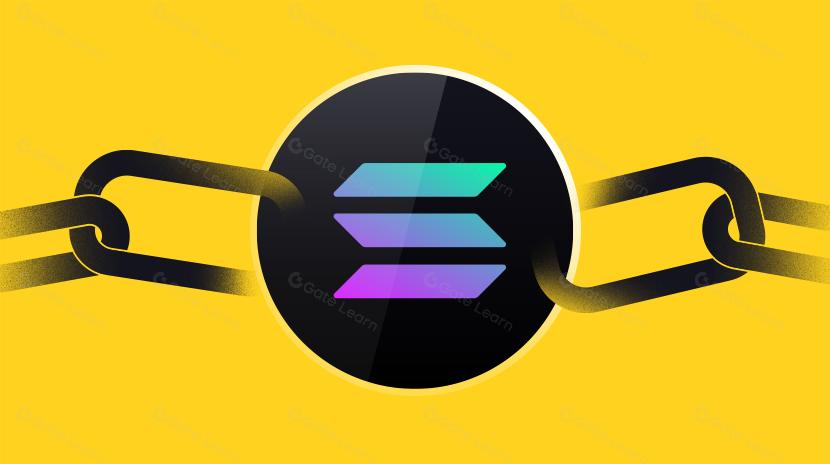fungibles

What Are Fungible Tokens?
Fungible tokens are blockchain-based assets that are interchangeable and identical in both value and function, emphasizing their "uniformity" and "divisibility." Similar to coins of the same denomination, one token can be seamlessly replaced by another.
On blockchains, fungible tokens are typically issued via smart contracts—self-executing code on the network that governs accounting, transfers, and permission management. Common examples include stablecoins (used for payments and pricing) and governance tokens (used for voting and project incentives).
Unlike native coins such as Bitcoin or Ethereum, fungible tokens are usually contract-based assets deployed on a specific chain. However, they can still be transferred, traded, and used for in-app payments.
Why Do Fungible Tokens Matter?
Fungible tokens are crucial because they solve the problem of standardized circulation, making pricing, settlement, and mass distribution efficient. Their design is ideal for payments, rewards, collateralization, and governance.
In practice:
- Stablecoins facilitate transactions by mirroring fiat currency values.
- Governance tokens allow holders to vote on project proposals.
- Game or platform points can be redeemed for benefits.
- Exchanges use fungible tokens as quote units to create diverse trading pairs and enhance market liquidity.
For developers, fungible tokens offer standardized interfaces that reduce the cost of issuance, integration, and wallet/exchange compatibility—enabling broader adoption of unified asset standards.
How Do Fungible Tokens Work?
Fungible tokens operate through smart contracts that maintain a ledger mapping addresses to balances and provide key functions: transfers, spending allowances, and queries for total supply and decimals.
- "Transfer" deducts tokens from your address and credits them to another.
- "Allowance" defines a maximum amount an application can spend on your behalf—useful for decentralized trading or automated payments.
Tokens also specify "total supply" and "decimals." Decimals determine the smallest transferable unit (e.g., 18 decimals enable precise micropayments and fractional settlements).
What Are the Main Standards for Fungible Tokens?
Popular standards include ERC‑20 (Ethereum and compatible chains), BEP‑20 (BSC), SPL (Solana), and TRC‑20 (TRON). Think of these standards as universal sockets—just as different phone brands use the same charging port, wallets and apps supporting these interfaces can recognize and handle tokens seamlessly.
Standards define properties like name, symbol, decimals, total supply, and essential functions such as transfer, approve, and transferFrom. Standardization ensures compatibility, lowering integration costs so mainstream wallets, exchanges, and applications can support tokens quickly.
For cross-chain assets, many tokens exist in multiple versions via "bridged mappings" on different networks. When depositing or transferring, select the correct network to avoid asset loss due to mismatched contracts.
How Are Fungible Tokens Different from NFTs?
Fungible tokens are "uniform," with each unit being interchangeable. NFTs (non-fungible tokens) are "unique," with distinct identifiers for every unit. Fungible tokens suit currencies, points, and governance votes; NFTs represent tickets, collectibles, or unique game items.
In terms of liquidity:
- Fungible tokens behave like divisible coins—easy to split or merge.
- NFTs are akin to numbered artworks—valued for individual features and rarity.
Note: In some cases, LP positions may be represented either as fungible tokens (early pool shares) or as NFTs (more granular market-making positions).
How to Acquire and Use Fungible Tokens
Here’s a typical process for obtaining and utilizing fungible tokens:
Step 1: Set Up a Wallet
Download a reputable wallet and securely back up your mnemonic phrase, which acts as your master key. Losing or exposing it puts your assets at risk.
Step 2: Prepare Transaction Fees
Transferring on different networks requires native fee assets (e.g., Ethereum needs ETH as gas).
Step 3: Buy on Gate
After registering and completing identity verification on Gate, you can deposit fiat or buy desired fungible tokens (like stablecoins) via spot trading.
Step 4: Deposit to Your Wallet
When withdrawing, select the network matching your wallet and confirm the token contract address to ensure proper asset delivery.
Step 5: Use in Applications
Before connecting to decentralized apps, test with small amounts. When spending fungible tokens for the first time in an app, set an "allowance"—the maximum amount the app can deduct. Adjust as needed and regularly revoke unused permissions.
What Can Fungible Tokens Do in DeFi and Applications?
In DeFi, fungible tokens power trading, lending, payments, and governance—serving both individual users and institutions.
Trading:
On Gate, users trade spot pairs using stablecoins as base units. On decentralized exchanges, you can swap fungible tokens or provide two types as liquidity to earn fees.
Lending:
Fungible tokens can be used as collateral to borrow other assets from protocols—boosting capital efficiency.
Governance:
Holding governance tokens allows participation in proposal voting to influence protocol parameters and strategic direction.
Payments:
Stablecoins facilitate merchant settlements and cross-border transfers—speeding up receipt times and improving traceability.
What Are Common Risks with Fungible Tokens?
Main risks stem from contract vulnerabilities, authorization misuse, market/liquidity issues, compliance, and custodial factors.
Contract & Project Risks:
Smart contracts may have logic flaws or be maliciously upgraded. Poor project management can impact token value or usability. Opt for audited projects with solid reputations—but no risk can be fully eliminated.
Authorization & Phishing Risks:
Allowances let apps spend your tokens; phishing sites or malicious contracts may trick you into granting unlimited access. Use small allowances where possible; regularly revoke unnecessary permissions via block explorers or popular management tools.
Market & Liquidity Risks:
Price volatility can cause losses; shallow liquidity pools increase slippage (execution price deviation). Set suitable slippage tolerances when trading and monitor pool depth and fees.
Stablecoin-Specific Risks:
If collateral or mechanisms fail, stablecoins may lose their peg. Diversify holdings; prioritize transparency and reserve audits to mitigate risk.
Compliance & Custody Risks:
Cross-border transfers and fiat settlement face regulatory differences. Always check networks, contract addresses, and confirmation status when transacting on exchanges or wallets to avoid irrecoverable errors.
What Are the Development Trends for Fungible Tokens?
Fungible tokens are evolving towards higher compliance, better cross-chain interoperability, and improved user experiences.
Asset Tokenization (RWA):
Real-world assets like notes, fund shares, and receivables are being mapped as fungible tokens—boosting settlement efficiency and composability.
Cross-Chain & Unified Standards:
Multi-chain ecosystems drive development of cross-chain bridges and messaging solutions; industry efforts focus on unified token representation and compatible interfaces to reduce contract complexity across versions.
Scalability & Lower Fees:
Layer-2 networks and high-performance blockchains cut transfer costs—making micropayments and high-frequency use cases feasible.
Account Abstraction & Security Experience:
Flexible account/payment sponsorships plus hardware wallets/multi-signature schemes promise easier use without sacrificing self-custody security.
Key Takeaways on Fungible Tokens
Fungible tokens feature "uniformity" and "divisibility," relying on smart contracts and standardized protocols to serve as foundational assets for on-chain pricing, settlement, and incentives. For users: wallet security, network matching, and allowance management are critical details. For applications: trading, lending, payments, and governance are primary use cases. To mitigate risks—contract flaws, authorization misuse, market volatility, compliance—stick to small-scale tests, diversify holdings, and review allowances regularly for safer participation in the fungible token ecosystem.
FAQ
What Is 0x000000000000000000000000000000000000dEaD Address?
This is a blockchain "black hole address" used for permanent token burning. Tokens sent here are irretrievable—effectively removed from circulation. Projects often use it to burn fungible tokens, reducing supply to help drive up prices—a common tokenomics strategy.
How Are Fungible Tokens Different from Regular Tokens?
Fungible tokens are the most common type—they have identical value and attributes, just like dollar bills that can be swapped one-for-one. Non-fungible tokens (NFTs), by contrast, are unique; each is non-interchangeable. Fungible tokens work well as currencies or assets; NFTs serve for identity proofs or collectibles.
Why Trade Fungible Tokens on Gate Instead of Self-Custody?
Trading fungible tokens on platforms like Gate offers three main benefits: high liquidity (instant buying/selling), strong security (platform safeguards assets), low costs (transparent fees). Self-custody involves managing private keys—a high-risk task for beginners who may lose funds or fall prey to scams. It’s recommended to start learning on Gate before considering self-managed wallets.
How Can You Assess if a Fungible Token Project Is Reliable?
Look at four key indicators:
- Contract audit reports (verified by security firms)
- Tokenomics design (reasonable inflation/burn mechanisms)
- Team background (industry-experienced core members)
- Community activity & trading volume (real user engagement)
On Gate, you can check trading pair numbers and 24-hour volumes for additional insight into project popularity.
Can Fungible Tokens Suffer Permanent Depreciation?
Yes. If a project lacks real-world use cases, the team abandons it or technical flaws arise—the token’s price may go to zero. New tokens carry higher risk; always evaluate actual project value rather than blindly following hype. Beginners should start with mainstream assets like Bitcoin or Ethereum before exploring smaller coins after learning risk management skills.
Related Articles

The Future of Cross-Chain Bridges: Full-Chain Interoperability Becomes Inevitable, Liquidity Bridges Will Decline

Solana Need L2s And Appchains?
